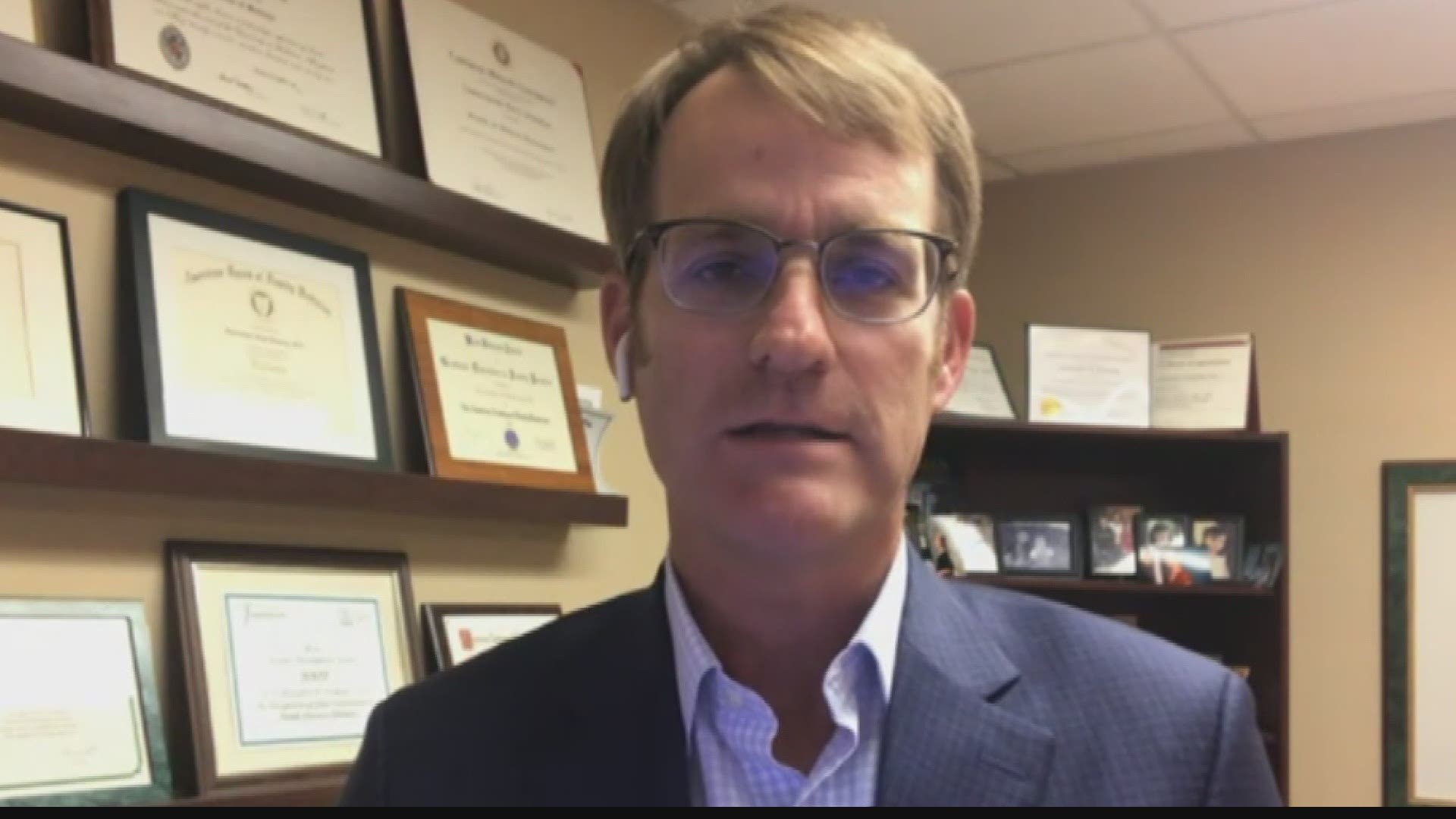INDIANAPOLIS — Eskenazi Health and other hospitals are bracing for what could be the perfect storm: a surge in COVID-19 cases as the flu season kicks into high gear.
"We've handled the flu every year, but we've never had to handle the flu on top of coronavirus," said Dr. Graham Carlos, chief of internal medicine at Eskenazi Health. "So having two viruses that can affect the respiratory system is a cause for concern."
The flu season alone is challenging for hospitals.
"Every year we have the flu season, we get stressed. There's lots of waiting in ER for rooms. Should we see a double whammy of COVID and the flu, it would certainly be disruptive on elective care," said Christopher Doehring, vice president of medical affairs at Franciscan St. Francis Health.
With flu and coronavirus symptoms similar (fever, cough, fatigue and sore throat), hospitals will be testing for both while urging everyone to be proactive by getting a flu shot.
"We think if there's widespread use of the flu vaccine, it will simplify things for us as the flu starts to emerge in the COVID battle," Doehring said.
Some hospitals have already seen a surge. Last week, IU Health Ball Memorial Hospital in Muncie, reported "an all-time high" in COVID-19 cases.
"Until very recently, the caseload and severity of illnesses experienced in east central Indiana were manageable, with the majority of cases not needing hospitalization," Delaware County Health Department Administrator Jammie Bane said in a news release Tuesday. "We're seeing some changes to this now, with single-digit hospitalization numbers in the past to numbers approaching 50 at some points now."
Still, there's hope that this time, hospitals are better prepared. A spokesperson for Community Hospitals said they know more about COVID-19 and have better information on such things as symptoms and testing. And tests are now better and more accurate, with faster results.
There's also no need to rely on scores of volunteers who wound up sewing masks and gowns for hospitals in short supply of PPE.
"We're in a much better place today, particularly as it relates to lifesaving techniques like ventilators," said Doehring.
Carlos agreed.
"We're much better prepared than we were in March," he said. "We're also working with hospitals all over the city on what to do if a patient comes in and they test positive for both viruses."
Still, he warns people not to become complacent and says that face masks and social distancing are critical.
"We need to keep eye on this moving into late fall and winter because as viruses often do, we expect them to increase in prevalence," Carlos said.

